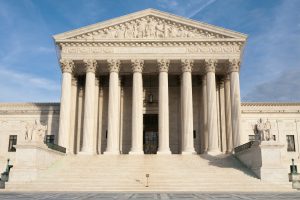Established under the Telecommunications Act of 1996, the Universal Service Fund collects approximately $8 billion annually from telecommunications carriers to subsidize services in underserved areas, including rural regions, low-income households, schools, libraries, and healthcare providers. The fund aims to ensure equitable access to telecommunications services nationwide.
Consumers’ Research, a conservative nonprofit organization, has challenged the USF’s funding mechanism, arguing that Congress unconstitutionally delegated its legislative authority to the FCC by allowing it to determine the contribution amounts from telecommunications providers. The challengers argue that this arrangement contravenes the nondelegation doctrine, which prohibits Congress from delegating its legislative powers to other entities without clear guidelines.
Furthermore, the plaintiffs assert that the FCC improperly delegated its authority to the Universal Service Administrative Company (USAC), a private nonprofit entity responsible for administering the fund. They argue that this subdelegation exacerbates the constitutional issues, as it places significant regulatory power in the hands of a private organization without adequate governmental oversight.
The U.S. Court of Appeals for the Fifth Circuit ruled in favor of Consumers’ Research, declaring the USF’s funding mechanism unconstitutional. The court held that Congress’s broad delegation of authority to the FCC, coupled with the FCC’s reliance on USAC, violated the nondelegation doctrine. This decision conflicted with rulings from other appellate courts, prompting the Supreme Court to grant certiorari to resolve the discrepancy.
The Supreme Court’s decision in this case could have far-reaching consequences for federal regulatory agencies and the programs they administer. A ruling affirming the Fifth Circuit’s decision may lead to increased judicial scrutiny of congressional delegations of authority, potentially limiting the ability of agencies to implement and manage complex programs. Conversely, a decision upholding the current structure of the USF could reinforce the status quo, allowing agencies to continue operating under broad congressional mandates.
Moreover, the outcome could directly impact the continuation of the USF and similar programs that provide essential telecommunications services to vulnerable populations. Changes to the fund’s structure or administration may affect the availability and affordability of services in rural and low-income communities, as well as in educational and healthcare institutions.
As the Supreme Court prepares to hear arguments in FCC v. Consumers’ Research, stakeholders across the telecommunications industry and affected communities await a decision that could redefine the boundaries of congressional delegation and agency authority. The ruling has the potential to not only shape the future of the Universal Service Fund but also influence the broader landscape of federal regulatory practices.



